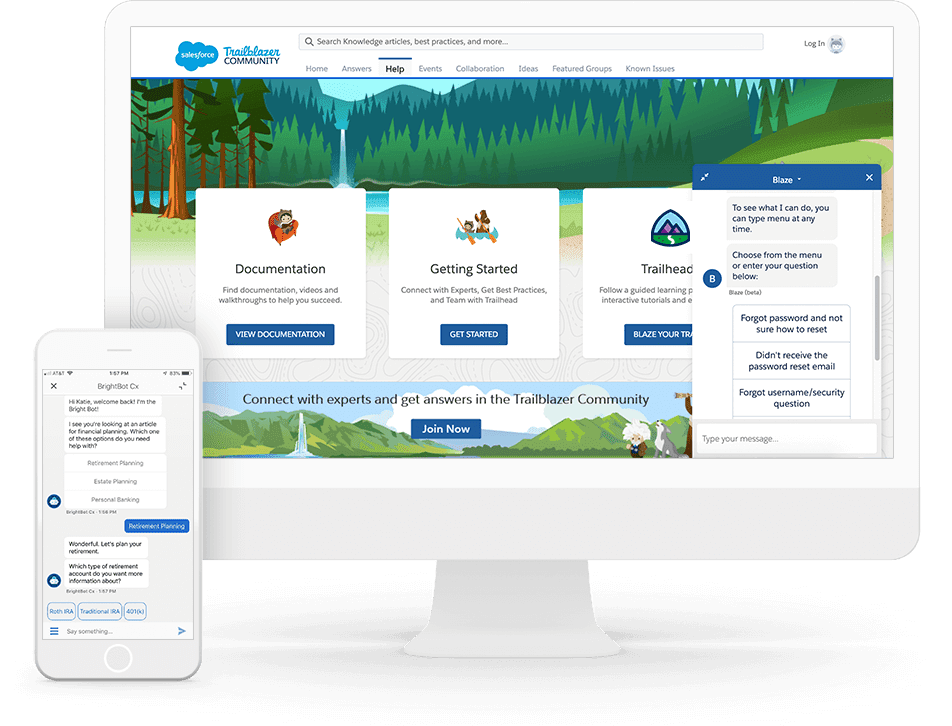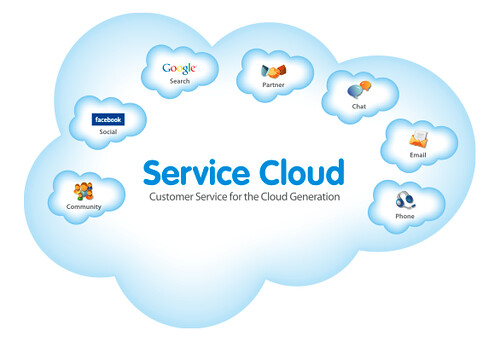Investing in the right e-commerce platform is crucial for the long-term success of your business. With so many options available in the market, it’s essential to understand and evaluate the competitors before making a decision.
In this article, we will delve into the world of Salesforce Commerce Cloud competitors, exploring their features, strengths, weaknesses, and real-world case studies. By the end of this guide, you’ll be equipped with the knowledge to make an informed decision and find the perfect fit for your e-commerce needs.
The Rise of Salesforce Commerce Cloud
Salesforce Commerce Cloud has revolutionized e-commerce by providing businesses with a robust cloud-based platform for personalized shopping experiences. With features like customer segmentation, AI-powered recommendations, and omnichannel capabilities, it drives customer engagement and boosts sales.
This success is evident from its impressive client roster and seamless integration with other Salesforce products. As the market evolves, Commerce Cloud continues to innovate and empower businesses in the competitive e-commerce landscape.
Understanding the Importance of Competitors
Analyzing competitors in the market is crucial for any business aiming to succeed. By gaining insights into their strategies, offerings, and market positioning, you can not only stay informed but also identify potential gaps in your own approach. This allows you to continuously improve and stay ahead of industry trends.
When you analyze your competitors, you can uncover valuable information about their strategies. This includes how they position themselves in the market, what unique selling points they emphasize, and how they attract customers.
By understanding these aspects, you can gain inspiration for your own marketing efforts and develop strategies that set you apart from the competition.
Furthermore, analyzing competitors provides an opportunity to evaluate alternative options available to consumers.
Considering different choices allows you to broaden your perspective and make informed decisions when it comes to features, pricing models, scalability options, customization capabilities, user-friendliness, customer support quality, and integration possibilities.
Comparing these factors between various competitors helps you understand where your own product or service stands in relation to others in the market. It enables you to identify areas where improvements can be made or differentiate yourself by offering something unique that others may lack.
In addition to gaining a competitive advantage, analyzing competitors allows you to spot emerging trends and adapt accordingly. By keeping a close eye on what your competitors are doing right – or wrong – you can adjust your own strategies proactively instead of reacting too late.
To summarize, understanding the importance of competitors is vital for any business looking for long-term success. Analyzing their strategies and offerings helps identify gaps in your approach while considering alternative options broadens your perspective.
By staying informed about industry trends and continually improving based on competitor analysis, you position yourself as a strong player in the market.
Competitor 1: Shopify
Shopify is a popular e-commerce platform that caters to businesses of all sizes. It offers an intuitive interface, customizable themes, and a vast app store for additional functionalities. Known for its user-friendly interface and extensive app ecosystem, Shopify is ideal for small businesses looking for simplicity and accessibility.
However, it may lack the advanced features required by larger enterprises.
Competitor 2: SAP Commerce Cloud (formerly Hybris)
SAP Commerce Cloud, formerly known as Hybris, is a powerful enterprise-level e-commerce platform that offers a comprehensive suite of features tailored to meet the complex requirements of businesses. This platform is designed to cater specifically to large-scale enterprises that demand sophisticated customization and integration capabilities.
One of the key strengths of SAP Commerce Cloud lies in its robust functionality. It provides a wide range of features including order management, product content management, and personalized marketing capabilities.
These features empower businesses to effectively manage their operations and provide a seamless shopping experience for their customers.
What sets SAP Commerce Cloud apart from competitors like Salesforce Commerce Cloud is its seamless integration with other SAP solutions. This integration allows businesses to leverage the power of multiple SAP products, creating a unified ecosystem for managing various aspects of their business.
However, it’s important to note that while SAP Commerce Cloud excels in providing enterprise-grade solutions, it may not be the ideal choice for smaller businesses or those with simpler needs. The complexity of this platform can be overwhelming for businesses that do not require extensive customization or integration capabilities.
In summary, SAP Commerce Cloud offers a comprehensive suite of features tailored for large-scale enterprises. Its seamless integration with other SAP solutions sets it apart from competitors in terms of scalability and flexibility. However, businesses with simpler needs may find this platform overly complex.
Competitor 3: BigCommerce
BigCommerce is a scalable e-commerce platform that offers a balance between simplicity and advanced functionality. It provides features like multi-channel selling, built-in SEO tools, and flexible customization options. One of its strengths is its user-friendly interface, extensive design options, and competitive pricing plans.
However, it may not offer the same level of customization and advanced features as some competitors like Salesforce Commerce Cloud or SAP Commerce Cloud. Overall, BigCommerce is a powerful solution for businesses looking for an accessible and affordable e-commerce platform with solid SEO capabilities.
Case Studies: Successful Companies Using Competitors’ Solutions
In this section, we will explore three case studies of companies that have found success by utilizing competitors’ solutions for their specific business needs.
These real-life examples showcase how different businesses, ranging from small online retailers to mid-sized fashion brands and enterprise-level B2B businesses, have leveraged the unique features and functionalities offered by these platforms.
Company X, a small online retailer, thrived with Shopify’s user-friendly interface and extensive app store. The platform allowed them to set up their store quickly while benefiting from third-party integrations.
For Company Y, an enterprise-level B2B business, SAP Commerce Cloud’s robust features and seamless integration with other SAP solutions proved essential in streamlining their complex processes effectively.
Company Z, a mid-sized fashion brand, experienced success with BigCommerce’s scalability and affordable pricing plans. The platform’s built-in SEO tools improved their online visibility while offering flexible customization options.
These case studies demonstrate how strategic implementation of competitors’ solutions can drive growth and success for businesses across various industries. By leveraging user-friendly interfaces, extensive app stores, robust features, seamless integrations, scalability, and affordability, these companies achieved remarkable results.
Evaluating the Overall Landscape
When evaluating e-commerce platforms, it’s crucial to consider factors such as pricing models, scalability, customization options, user-friendliness, customer support, and integration capabilities.
In terms of pricing models, compare subscription-based options with transaction fees to determine the best fit for your budget and sales volume. Scalability is important to ensure seamless performance during peak traffic periods.
Customization options allow you to tailor the platform to your specific needs, providing a unique shopping experience for customers. Look for flexibility in design elements and integration with third-party tools.
User-friendliness is key for both administrators and customers. A simple interface enhances navigation and avoids potential challenges. Prompt and knowledgeable customer support is vital in resolving issues quickly.
Integration capabilities ensure smooth connectivity with other tools like inventory management systems and payment gateways. This streamlines operations and boosts efficiency.
By thoroughly evaluating these factors among competitors, you can make an informed decision when selecting the right e-commerce platform for your business.
Making an Informed Decision
Choosing the right e-commerce platform requires careful consideration of various factors. These include your business size, industry requirements, budget, scalability needs, customization requirements, technical expertise, and growth plans.
It’s important to prioritize features that align with your objectives and find a platform that caters to these needs effectively. Consulting with experts or seeking professional advice can provide valuable insights based on experience and help you make an informed decision.
By evaluating these factors and getting guidance where needed, you can confidently select a platform that sets you up for success in the competitive e-commerce landscape.
[lyte id=’_gClARLAaiE’]







